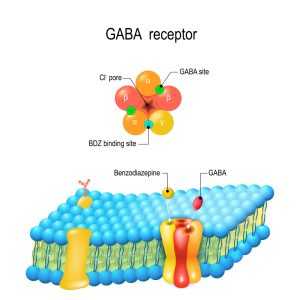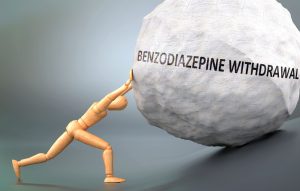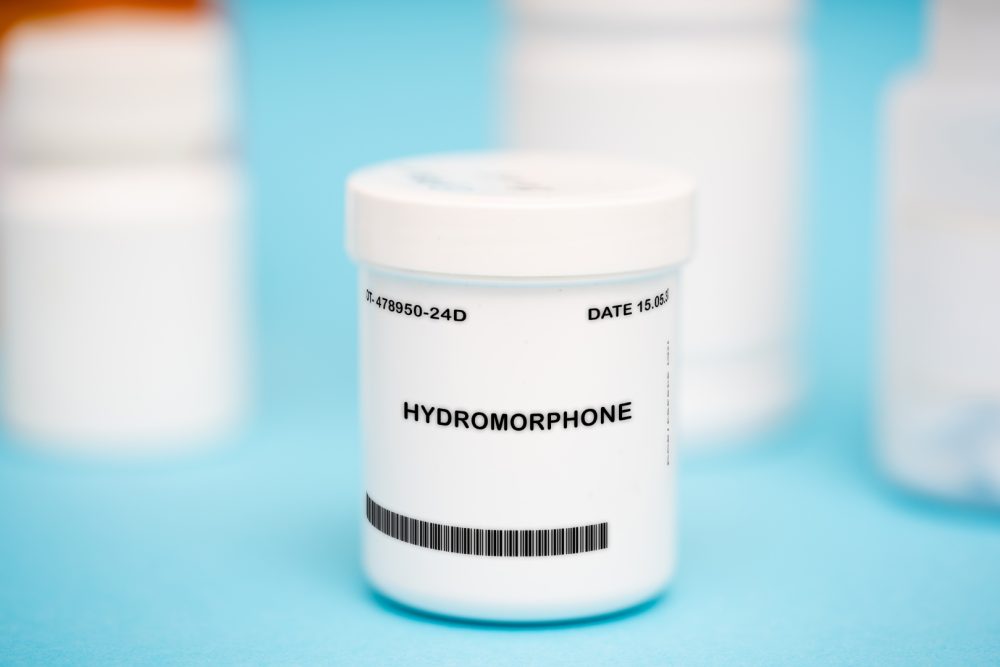Benzodiazepines, often referred to as “benzos,” are a class of psychoactive drugs that act as central nervous system (CNS) depressants. They are widely prescribed for anxiety, insomnia, seizures, and muscle spasms. While benzos can be effective for short-term treatment, they carry significant risks, including dependence, addiction, and potentially life-threatening withdrawal symptoms. This post will provide an overview of benzodiazepines, their uses, potential dangers, and the importance of seeking professional help for benzo addiction.
What are Benzodiazepines?
Benzodiazepines work by enhancing the effects of a neurotransmitter called gamma-aminobutyric acid (GABA) in the brain. GABA is an inhibitory neurotransmitter, meaning it reduces nerve activity. By increasing GABA’s effects, benzos produce a calming, sedative, and muscle-relaxing effect. [1]
Common Benzodiazepines:
There are many different types of benzodiazepines, each with varying potencies, durations of action, and specific uses. Some of the most commonly prescribed benzos include:
Alprazolam (Xanax): Short-acting, often used for anxiety and panic disorders.
Diazepam (Valium): Longer-acting, used for anxiety, muscle spasms, seizures, and alcohol withdrawal.
Lorazepam (Ativan): Intermediate-acting, used for anxiety, seizures, and pre-procedure sedation.
Clonazepam (Klonopin): Longer-acting, used for seizures and panic disorder.
Temazepam (Restoril): Intermediate-acting, primarily used for insomnia.
Medical Uses of Benzodiazepines:
Benzos are prescribed for a range of conditions, including:
Anxiety Disorders: Generalized anxiety disorder (GAD), panic disorder, social anxiety disorder.
Insomnia: Short-term treatment of difficulty falling asleep or staying asleep.
Seizures: Certain types of seizures, including status epilepticus.
Muscle Spasms: Relief from muscle spasms caused by injuries or neurological conditions.
Alcohol Withdrawal: Management of alcohol withdrawal symptoms.
Pre-Procedure Sedation: Relaxation before medical or dental procedures.
The Risks of Benzodiazepine Use:
Even when taken as prescribed, benzodiazepines can cause side effects, including:
- Drowsiness and fatigue
- Dizziness and lightheadedness
- Impaired coordination and balance
- Confusion
- Memory problems (especially with long-term use)
- Slurred speech
- Muscle weakness
- Headache
- Blurred vision
- Depressed mood
Benzodiazepine Dependence and Addiction:
One of the most significant risks associated with benzos is their high potential for dependence and addiction. With regular use, the body can develop a tolerance, requiring higher doses to achieve the same effect. This can quickly lead to physical and psychological dependence.
Physical Dependence: The body adapts to the presence of the benzo, and abrupt discontinuation or dose reduction can trigger withdrawal symptoms.
Psychological Dependence: Individuals may feel unable to cope with anxiety, stress, or other symptoms without the drug, leading to compulsive use.
Benzodiazepine Withdrawal:
Benzo withdrawal can be severe, protracted, and even life-threatening. Symptoms can range from mild to severe and may include:
Rebound Anxiety and Insomnia: Anxiety and sleep problems that are worse than before starting the benzo.
Restlessness and Agitation
Tremors and Muscle Spasms
Sweating
Nausea and Vomiting
Headaches
Seizures (in severe cases)
Hallucinations
Delirium
Psychosis
Suicidal thoughts
Because of the serious dangers of benzo withdrawal, it is absolutely crucial to never stop taking benzodiazepines abruptly or without medical supervision. A medically supervised detox program is the safest and most effective way to manage withdrawal symptoms and begin the recovery process. [2]
The Dangers of Mixing Benzos with Other Substances:
Combining benzos with other CNS depressants, such as alcohol, opioids, or other benzodiazepines, is extremely dangerous. This combination can significantly increase the risk of:
- Respiratory Depression (slowed or stopped breathing)
- Overdose
- Coma
- Death [3]
The Rise of Illicit Benzodiazepines:
The illicit market for benzos has grown, with counterfeit pills often containing dangerous substances like fentanyl. These fake benzos can be indistinguishable from legitimate medications, making it impossible to know what you’re taking. Fentanyl is a highly potent synthetic opioid that can cause a fatal overdose even in tiny amounts. [4]
Seeking Help for Benzodiazepine Addiction:
If you or someone you know is struggling with benzo use, it’s essential to seek professional help. Recovery is possible, and a comprehensive treatment plan can provide the support and resources needed to overcome addiction.
Treatment typically involves:
Medically Supervised Detox: A safe and controlled environment to manage withdrawal symptoms, often involving a gradual tapering of the benzo dose.
Inpatient Rehabilitation: Intensive therapy and support in a residential setting.
Outpatient Treatment: Ongoing therapy and support while living at home.
Therapy: Cognitive-behavioral therapy (CBT), individual counseling, group therapy, and family therapy can help address the underlying causes of addiction and develop coping strategies.
Support Groups: 12-step and non-12-step programs and support groups provide peer support, encouragement, and a sense of community.
Conclusion:
Benzodiazepines can be effective medications for managing various conditions when used as prescribed and for short periods. However, their potential for dependence, addiction, and dangerous withdrawal makes it crucial to understand the risks. If you’re concerned about your benzo use or the use of someone you care about, don’t hesitate to seek professional help. Recovery is possible with the right support and treatment.
If you or a loved one is dependent on Benzos, reach out to Gallus Detox today for a confidential consultation.
Sources:
National Institute on Drug Abuse (NIDA): Benzodiazepines and Opioids. https://www.drugabuse.gov/drug-topics/opioids/benzodiazepines-opioids
Substance Abuse and Mental Health Services Administration (SAMHSA): Detoxification and Substance Abuse Treatment. https://store.samhsa.gov/product/TIP-45-Detoxification-and-Substance-Abuse-Treatment/SMA13-4131
Centers for Disease Control and Prevention (CDC): Opioid Overdose: Understanding the Epidemic. (While focused on opioids, this page highlights the dangers of combining opioids and benzos.) https://www.cdc.gov/opioids/basics/epidemic.html
Drug Enforcement Administration (DEA): Counterfeit Pills. https://www.dea.gov/factsheets/counterfeit-pills
Benzodiazepine Use, Abuse, and Misuse Among Adults in the United States: https://www.ncbi.nlm.nih.gov/pmc/articles/PMC6358464/
Important Notes:





 Steve B
Steve B 
